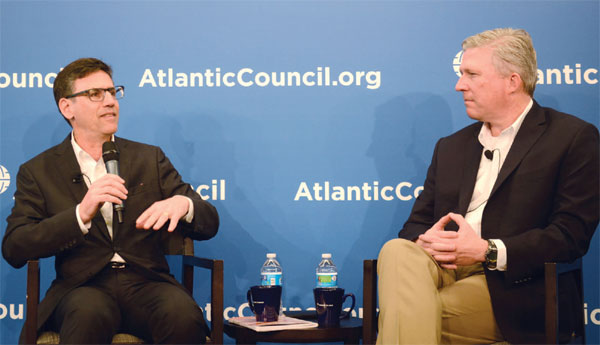Search for 'super battery' gets charged up
China and the US should cooperate to develop a "super battery", a kind of clean energy that contains vast electric capacity, according to energy experts meeting in Washington.
"We are living in a more and more transparent world economy, even with the competition," said Jeffrey Chamberlain, executive director of the Joint Center for Energy Storage research at the Argonne National Laboratory, at the Atlantic Council on Monday. "There is room to collaborate in scientific research with other scientists all over the world."
Chamberlain noted that the cooperation between China and the US in terms of scientific research has been a common practice for decades, adding that he himself has been to China to talk and exchange views with Chinese scientists on the challenges of energy.
In the case of finding a "super battery", he said that "if we focus on doing the basic fundamental science, then collaboration is a good thing. We should encourage that".
"The cooperation will happen after innovation," said Steve LeVine, Washington correspondent for Quartz and author of The Powerhouse: Inside the Invention of a Battery to Save the World, at the Atlantic Council.
"The competition is too stiff, and the stakes of winning are too high in the current stage," LeVine said. After the innovation period, he said, China and the US will welcome a stage in which they can work together.
Chamberlain expressed his hope that the areas where China and the US could cooperate would expand. "The exciting part that comes in the collaboration is: can we collaborate beyond the scientific research? And I think we can," he said.
The "super battery", which would have the ability to fully charge electric vehicles in eight minutes, is based on grapheme-polymer technology. An eight-minute charge would enable an electric vehicle to travel more than 300 miles or power a smart phone for a week.
Currently, the leading countries focused on developing a "super battery" are China, the United States, Japan and South Korea, according to Xinhua News.
Asked about the prospect of this kind of clean energy in China, Chamberlain, an expert on energy storage, told China Daily that he is very optimistic about the development of a "super battery" in China.
LeVine shared a similar vision that the promotion of a "super battery" will significantly improve the environment, especially the air quality in China.
"They're going to have 400 million more cars by 2030. Then you imagine that if all of those cars are gasoline-driven, what happens to the air? What if instead those 400 million cars are electric cars? Then suddenly you don't have the pollution," he said.
Wan Gang, China's minister of science and technology and an expert on automobiles, said at an automobile forum on March 10 that electric vehicles should be promoted. "Colleagues of the ministry are more willing to take electric vehicles, as every kilometer they travel means a reduction of PM2.5 emission, compared with gas vehicles," Wan told Xinhua News.
Liu Xiaoxian in Washington contributed to this story.
|
Jeffrey Chamberlain (right), executive director of the Joint Center for Energy Storage research at the Argonne National Laboratory, talks about the road to the "Super Battery" and the cooperation between countries with Steve LeVine, author of The Powerhouse: Inside the Invention of a Battery to Save the World, at the Atlantic Council in Washington on Monday. Liu Xiaoxian / for China Daily |

























